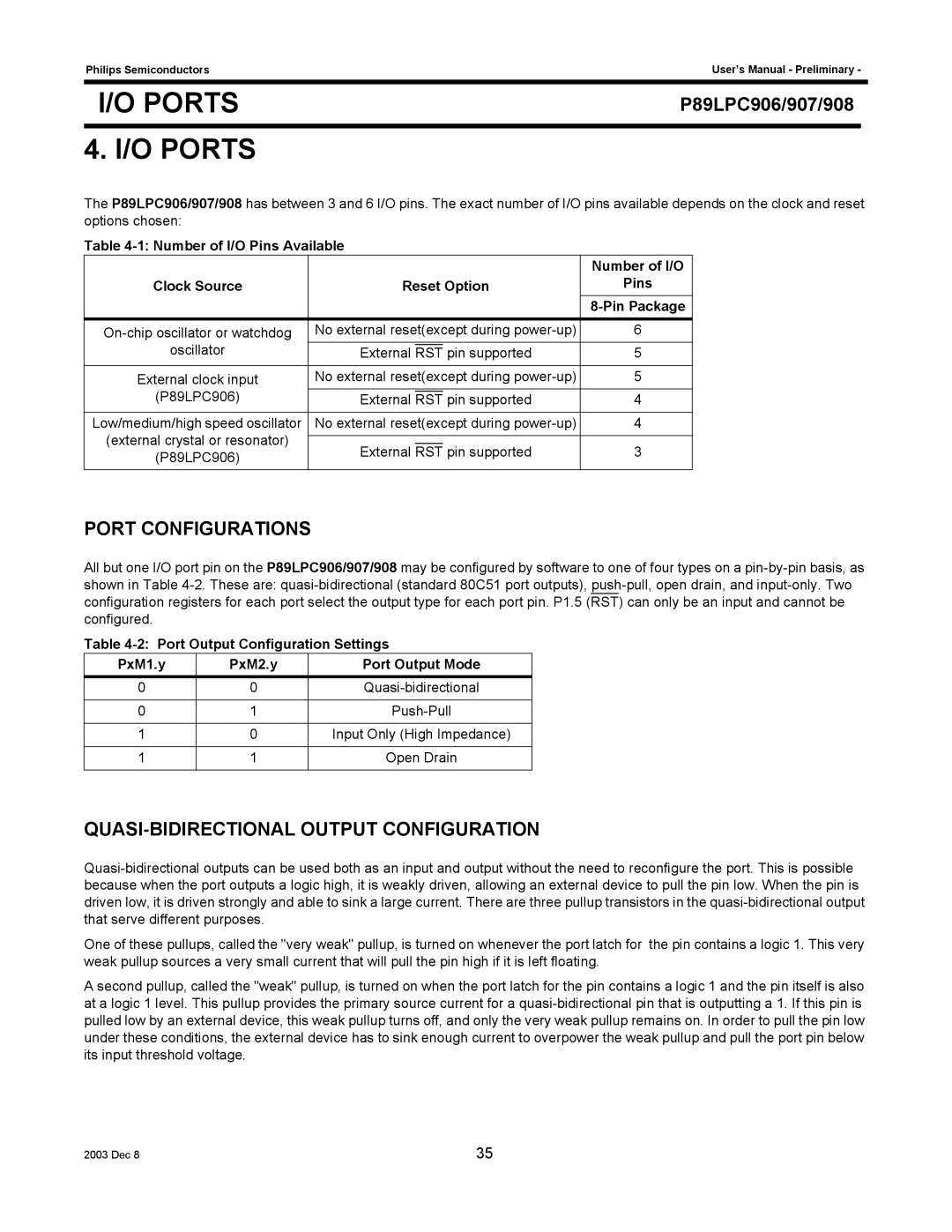Philips Semiconductors | User’s Manual - Preliminary - | |
|
|
|
I/O PORTS | P89LPC906/907/908 | |
4. I/O PORTS |
|
|
The P89LPC906/907/908 has between 3 and 6 I/O pins. The exact number of I/O pins available depends on the clock and reset options chosen:
Table 4-1: Number of I/O Pins Available
|
|
|
| Number of I/O | |
Clock Source | Reset Option | Pins | |||
|
|
|
| ||
No external reset(except during | 6 | ||||
oscillator | External |
| pin supported | 5 | |
RST | |||||
External clock input | No external reset(except during | 5 | |||
(P89LPC906) | External |
| pin supported | 4 | |
RST | |||||
Low/medium/high speed oscillator | No external reset(except during | 4 | |||
(external crystal or resonator) |
|
|
|
| |
|
|
|
| ||
External RST pin supported | 3 | ||||
(P89LPC906) | |||||
|
|
|
| ||
|
|
|
|
| |
PORT CONFIGURATIONS
All but one I/O port pin on the P89LPC906/907/908 may be configured by software to one of four types on a
Table
PxM1.y | PxM2.y | Port Output Mode |
0 | 0 | |
|
|
|
0 | 1 | |
|
|
|
1 | 0 | Input Only (High Impedance) |
|
|
|
1 | 1 | Open Drain |
|
|
|
QUASI-BIDIRECTIONAL OUTPUT CONFIGURATION
One of these pullups, called the "very weak" pullup, is turned on whenever the port latch for the pin contains a logic 1. This very weak pullup sources a very small current that will pull the pin high if it is left floating.
A second pullup, called the "weak" pullup, is turned on when the port latch for the pin contains a logic 1 and the pin itself is also at a logic 1 level. This pullup provides the primary source current for a
2003 Dec 8 | 35 |
